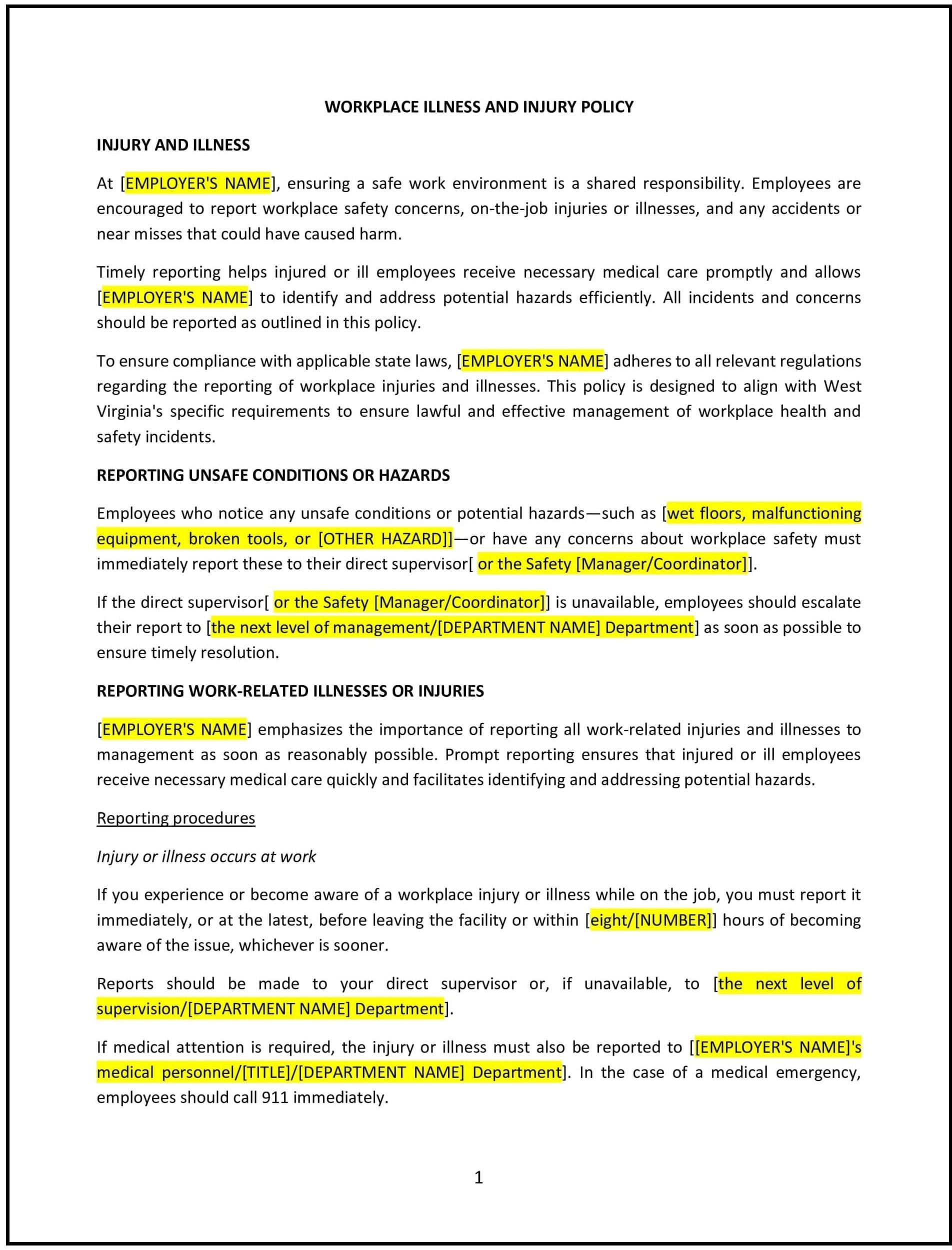Workplace illness and injury policy (West Virginia): Free template
Got contracts to review? While you're here for policies, let Cobrief make contract review effortless—start your free review now.

Customize this template for free
Workplace illness and injury policy (West Virginia)
In West Virginia, a workplace illness and injury policy establishes guidelines for preventing, managing, and responding to workplace-related illnesses and injuries. This policy ensures that employees and employers understand their responsibilities for maintaining a safe workplace and outlines procedures for reporting, investigating, and addressing workplace health incidents.
The policy defines preventive measures, reporting requirements, and steps for supporting affected employees while promoting compliance with applicable state and federal laws.
How to use this workplace illness and injury policy (West Virginia)
- Define responsibilities: Specify the roles of employees, supervisors, and management in maintaining a safe work environment and addressing workplace health issues.
- Outline reporting procedures: Provide steps for employees to report illnesses or injuries, including designated contacts and required documentation.
- Detail investigation protocols: Include processes for investigating incidents to identify root causes and implement corrective actions.
- Emphasize preventive measures: Highlight safety practices, training programs, and workplace hazard assessments to minimize risks.
- Support compliance: Align the policy with West Virginia labor laws, Occupational Safety and Health Administration (OSHA) standards, and workers’ compensation regulations.
Benefits of using a workplace illness and injury policy (West Virginia)
- Enhances workplace safety: Reduces risks of illnesses and injuries by promoting proactive safety measures.
- Supports compliance: Aligns with West Virginia laws, OSHA standards, and workers’ compensation requirements to promote legal adherence.
- Encourages accountability: Establishes clear guidelines for employees and employers to prevent and address workplace health issues.
- Protects employee well-being: Ensures timely support and resources for employees affected by workplace illnesses or injuries.
- Minimizes disruptions: Provides a structured approach to managing incidents, ensuring operational continuity and employee trust.
Tips for using a workplace illness and injury policy (West Virginia)
- Communicate the policy: Share the policy with employees during onboarding and provide regular training to reinforce safety practices.
- Train managers: Equip supervisors with the skills to recognize and respond to workplace health issues promptly and effectively.
- Conduct regular assessments: Perform periodic safety audits and risk assessments to identify and address potential hazards.
- Maintain records: Keep detailed documentation of reported illnesses, injuries, investigations, and corrective actions to ensure transparency and compliance.
- Review periodically: Update the policy to reflect changes in West Virginia laws, workplace practices, or industry standards.